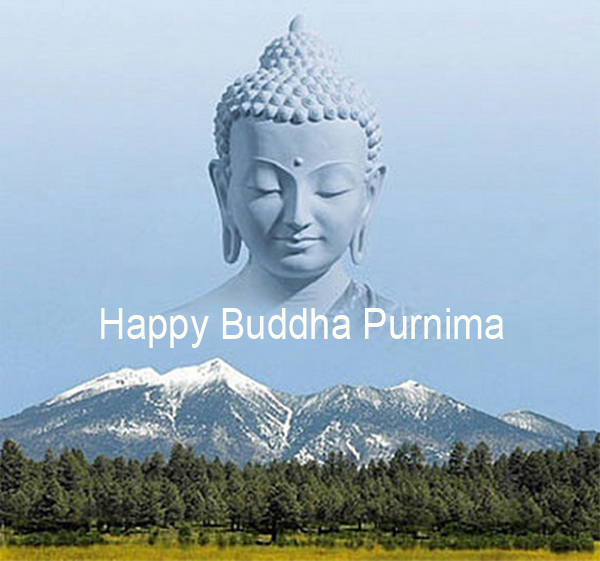Buddha Pournima,......the day of Gautama Buddha's enlightenment
A person who
grows on the spiritual path cannot ignore Gautama because his presence has
become so dominant. In his own lifetime, he had forty thousand monks who went
out to spread the spiritual process. In his own silent way, he changed the
world forever. He has been one of the greatest spiritual waves on the planet.
Buddha Pournami has always been significant in the yogic culture and was always
a very auspicious day in any spiritual aspirant’s life. but today. On that full
moon evening over 2500 years ago, a man blossomed into a being.
Though people
generally associate the word Buddha with Gautama, he is not the only Buddha.
There have been thousands of Buddhas on this planet and there still are. “Bu” means Buddhi or the intellect.
One who is above his intellect, one who is no longer a part of his mind, is a
Buddha.
Right now, most people are just a
bundle of thoughts, emotions, opinions, and of course, prejudices. Please see, what
we consider as “ourself” is just a jumble of things that we have gathered from
outside. Whichever kind of situations we were exposed to, that is the kind of
nonsense we have gathered in our mind. Our mind is society’s garbage bin,
because we have no choice about what to take and what not to take. Whoever goes
that way throws something into our head. We can enshrine this nonsense as
divinity if we want, but it will not become divinity; it is just simple mind.
There is another way to experience life and go beyond the process that we call
as mind. To do this, we need to shut the garbage bin and keep it aside.
The mind is a phenomenal thing, but if
we get stuck to it, it will take us for a ride endlessly. If we are in the
mind, we are a nonstop suffering human being – we cannot help it, even no one
can help. Suffering is inevitable. Maybe when we are watching the sunset, it is
so beautiful that we forget everything, but our suffering is sitting right behind
us like a tail. The moment we look back, it is right there. What we call as
“our happiness,” are those moments when we forgot our suffering. As long as we
are in the mind, fears, anxieties and struggles are inevitable; that is the
nature of the mind.
It is because people are unable to
bear the torture of the mind that they have devised many ways in society to go
below the mind. Excessive eating, alcohol, excessive indulgence in physical
pleasures, these are all ways to go below the mind. People use them and for a
few moments they forget the torture. If Mr. X hits the bottle and sleep. For a
few hours his mind does not bother him anymore because he has gone below the
mind. There is great pleasure and it is so relaxing because suddenly the
tortures of his mind are not there. So he gets deeply addicted to it.
But the nature of the evolutionary
process is such that this being which was below the mind has right now evolved
into the mind. If it wants to become free, it has to go beyond the mind. There
is no such thing as going back. If by using a chemical he goes below the mind,
he will see, life always catches up with him with more intensity after that is
over. It is always so. Suffering intensifies. The process of yoga is to see how
to go beyond the mind. Only when a person is beyond the mind, he can really be
himself with enlightenment.
|
As you sow, So shall you reap.....!!!
Subscribe to:
Posts (Atom)






